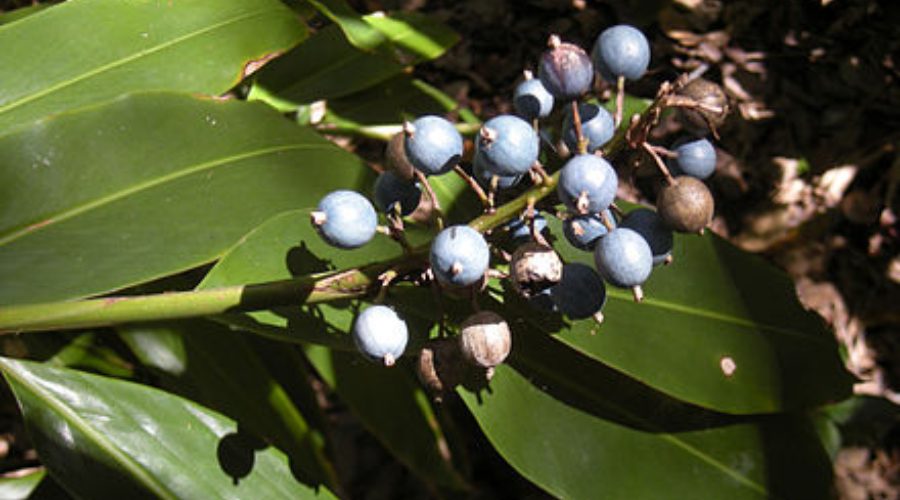Native ginger
Plant text by Naomi Lacey, feature photo Wikipedia
Common name: Native ginger
Scientific name: Alpinia caerulea
Family, and related species: Zingiberaceae
Description including form (tree, climber etc), other similar species
A clumping, rhizomatous perennial herb that grows to 3m. Leaves are up to 40cm long and 10cm wide and the flower spike is up to 30cm long. Flowers are fragrant and white and are followed by blue capsules or berries approximately 1cm diameter.
Role/ characteristics/ use in permaculture
The berries are known to activate the salivary glands so we’re used to keep the mouth moist when bushwalking by aboriginal people. The white pulp inside the berry is the edible part that has a tangy, fruit salad-like taste. Seeds are discarded.
The seeds can be dried and ground to use as a spice flavouring or make a herbal tea.
New shoots have a mild ginger flavouring as do the roots although the roots have a much more earthy taste.
Birds are attracted to the flowers.
It is a very attractive plant and will also grow very well as an indoor plant.
Ecology and habitat requirements
Native to the east coast of Australia’s rainforest understory this plant grows best in dappled to full shade although has been known to grow successfully in full sun. It needs adequate water and likes a good dose of compost regularly but will do quite well without. It will also grow exceptionally well as an indoor plant if watered well.
Access to plants
Best grown from the rhizome. Dig up some of the rhizomes on a well-established plant and simply re-plant elsewhere in the garden or in pots. Will shoot within a few weeks if well-watered.
This plant is readily available in nurseries and at markets throughout the Top End.
References
Save Our Waterways Now, Alpinia caerulea (ZINGIBERACEAE) Native Ginger, Blue Berry Ginger
Wikipedia, 2014, Alpinia caerulea
Macquarie University Faculty of Science, Native Ginger Alpinia caeruleae, pamphlet, 2014

